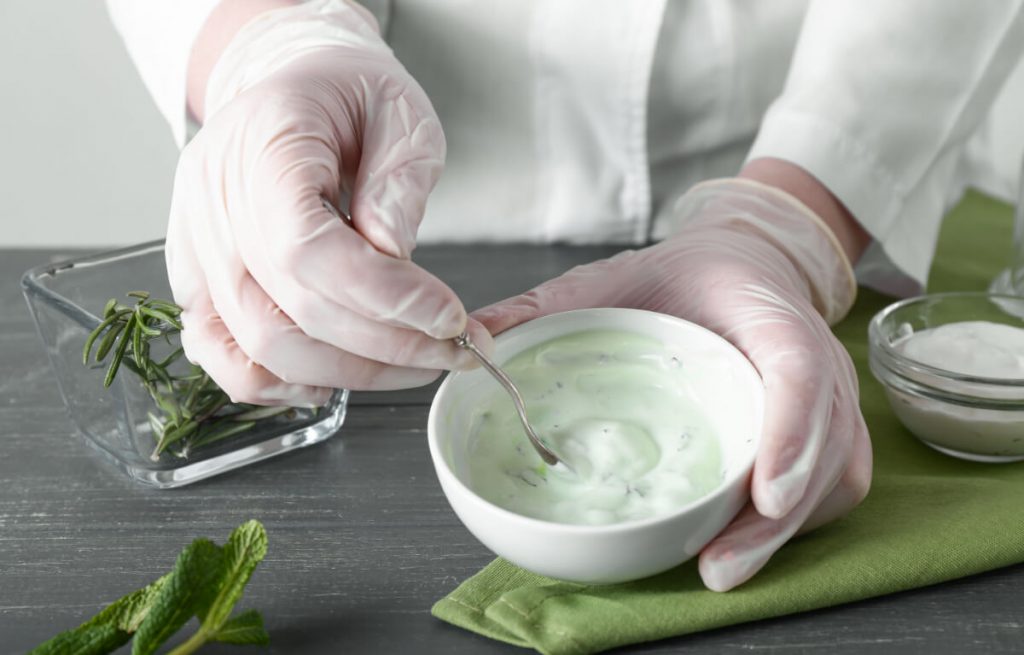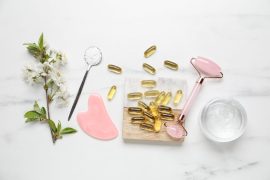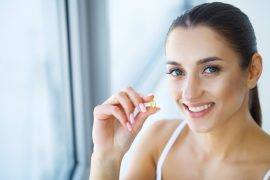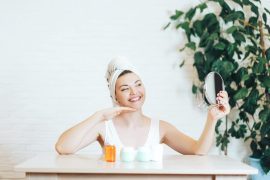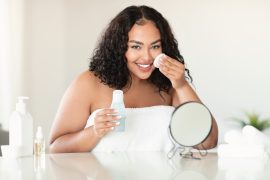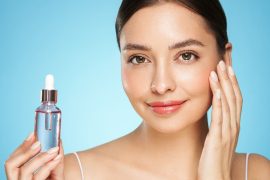Many times we hear about ingredients or active ingredients, but we do not know how they can help us or if they are really effective for our skin type or if they are just for simple fashion. If you want to become a true expert in the field and get the most out of your skincare routine, you cannot miss this article! Cosmetics are constantly evolving and every day it incorporates new ingredients into its products. For this reason, we want to introduce you to the ingredients with the most benefits for the skin, so don’t hesitate to look for products that contain them. Get your notes ready!
SPF for High sun protection, the most important of all
It is useless to use a lotion if it does not protect your skin from the sun. Ultraviolet radiation is responsible for 80% of skin aging (in fact, dermatologists already talk about ‘photo-aging’). “The last layer of treatment should always be a broad-spectrum sunscreen with a high degree of protection. 365 days a year, even if we don’t lie on the beach, the sun hits our face in the car, while we walk down the street and pretty much anywhere you go during the day… It must be applied before leaving the house and reapplied every two hours if we are going to be outdoors”, warns dermatologists. The broad-spectrum sunscreen protects us from both UVA radiation (causing wrinkles and damage to cellular DNA) and UVB (responsible for sunburn).
The FPS indicates SPF 30 or 50 is ideal for UVB protection and for UVA protection, PA ++++ provides the extreme level of protection. Protecting yourself against the sun’s rays is imperative to avoid turning 60 with a raisin. Remember: sunscreen is the best anti-wrinkle.
Vitamins C and E
Solar radiation and pollution are the ideal breeding ground for the proliferation of free radicals, perverse agents that love to oxidize our collagen and elastin fibers until they are useless. The consequence: accelerated loss of elasticity and firmness and lines of expression increasingly marked. Vitamins C and E have great antioxidant power, although C, in addition, stimulates the production of collagen and lightens stains. “As it is formulated with a water-soluble base, oil-free products can be made, very interesting for oily skin with acne marks for men, which reject unctuous textures. The E, on the other hand, requires oily phases. But not everything that glitters as vitamin C is gold. For it to be effective topically, it must be at a minimum concentration of 8%. Another problem with vitamin C is that it is very unstable and easily oxidized. Choose opaque airless formats and if it is in a dropper, check the expiration date. It usually does not exceed 3 months after opening. Bottom line: Vitamin C works, but is usually expensive.
Resveratrol
Resveratrol possesses a wide range of biological properties such as antioxidant, cardio protective, neuroprotective, anti-inflammatory and anticancer activities. Resveratrol is a powerful antioxidant whose beneficial effect is hampered by its low bioavailability. This polyphenol (present, among others, in grapes) in addition to making it difficult for free radicals, stimulates the formation of our own antioxidant enzymes.
Coenzyme Q10
The epidermis naturally produces this antioxidant. But due to sun exposure and age, from the age of 25-30, it should be reinforced with an external contribution. It is more affordable than other antioxidants.
Niacinamide
At this point in your life, and after many summers roasting in the sun, it is very likely that the melanocytes will start to malfunction and make war in spots. “Niacinamide or vitamin B3 inhibits the action of tyrosinase, the enzyme necessary for the synthesis of melanin. If it is not metabolized, there is no stain. At the same time, this vitamin stimulates epidermal cell renewal, very useful.
Hydroxyl acids
AHAs. Alpha-hydroxyl acids, such as glycolic and lactic, are a type of chemical scrub that helps remove cells from the skin’s surface. The AHAs used in skincare products range in intensity, from about 2% to 70% on prescription, and help combat a variety of skin problems, including sun damage and a rough or uneven texture. Also, they help the skin to look and feel smoother and improve the appearance of lines and wrinkles. The solution is hydroxyl acids, which is capable of loosening the ionic bonds of superficial dead cells so that they can be easily removed without rubbing. Now it remains to determine if the alpha or beta suits you. Beta hydroxyl acids (like salicylic acid) are perfect for oily or acne-prone skin, Alpha hydroxyl acids (better known by their acronyms – AHAs – or by their proper name: azelaic acid, glycolic acid, lactic acid, have a more intense exfoliating action, but can be somewhat irritating or even sensitize in the sun.
Hyaluronic acid
Our body contains large amounts of hyaluronic acid, almost half of which is in our skin. Its main function is to attract and retain moisture, which helps keep the skin looking plump and elastic. Therefore, it is not surprising that a product containing hyaluronic acid can be beneficial in attracting additional moisture to dry and dehydrated skin.
Retinol
It is one of those basics that you should have in the toiletry bag, because it serves everything: it smoothes wrinkles, mitigates blemishes, refines pores, and stimulates cell regeneration. And at 30, the question to “Do you have all these problems” is often Yes. Contrary to the urban legend that accompanies it, it does not make you sensitive to the sun. The best time for you to start using retinol is in your 20s.
Lipids
After years of looking for oil-free cosmetics to make acne go away, now it turns out that you have to throw out fatty ingredients. Well, after blowing 30 candles your skin produces fewer lipids. This leaves it more vulnerable to external agents. Take the test: do you notice that in winter it dries out more easily? The answer is not in the lack of water, but that you lose it more because the skin is no longer the impregnable barrier that it was.
Follow this guide to choose the best kind of skincare product for everyday use.

